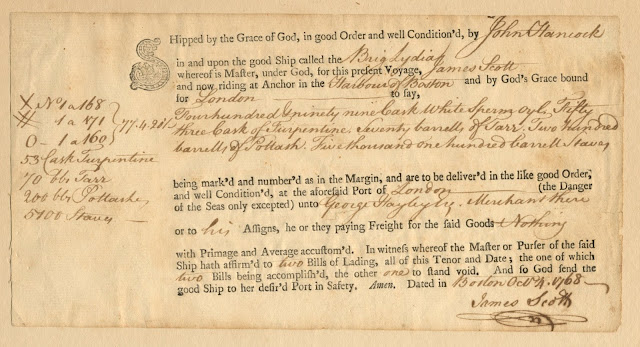1768
On April 9, 1768, two customs employees (called tidesmen) boarded Hancock's brigantine Lydia in Boston Harbor. Hancock was summoned, and finding that the agents lacked a writ of assistance (a general search warrant), he did not allow them to go below deck. When one of them later managed to get into the hold, Hancock's men forced the tidesman back on deck. Customs officials wanted to file charges, but the case was dropped when Massachusetts Attorney General Jonathan Sewall ruled that Hancock had broken no laws. Later, some of Hancock's most ardent admirers would call this incident the first act of physical resistance to British authority in the colonies and credit Hancock with initiating the American Revolution.
Must be a "valuable"document:
Heeere's Johnny:
John Singleton Copley



No comments:
Post a Comment